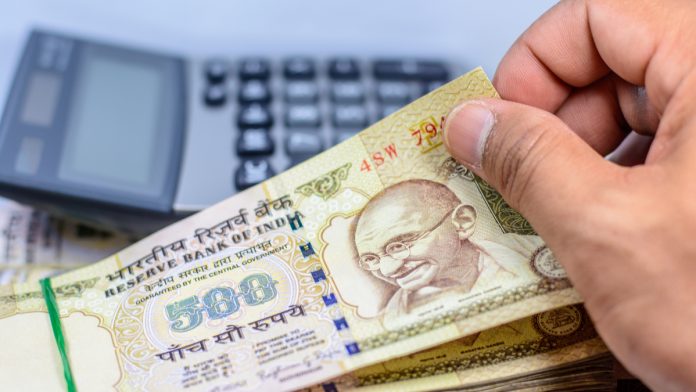GBP/INR is defying the larger uptrend on Thursday, showing some correction after making another failed attempt to consolidate above 95.000. Currently, one British pound buys 94.578 Indian rupees, down 0.14% as of 7:00 AM UTC. Still, the pair is trading above the support line of an uptrend that turned steeper at the end of May.
The price is facing resistance near 95.000 and finding reliable support near 94.000.
The pound has declined against the rupee as investors have already priced in the weak performance of India’s services sector.
Britain’s Economy Improves in May
On top of that, economic data released by IHS Markit suggests that Britain’s GDP is experiencing a deep recession amid the COVID pandemic. Nevertheless, the pace of the economic decline slowed last month compared to April. This has to do with the gradual lifting of restricting measures.
The UK’s composite purchasing managers’ index (PMI), which merges both the dominant services sector and manufacturing, increased to 30.0 from 13.8 in April. The preliminary reading suggested an increase to 28.9. The index’s 50 mark separates growth from contraction.
The services PMI came at 29.0, which is slightly better than the flash reading for May. In April, the industry showed a record crash to 13.4.
Tim Moore, economics director at IHS Markit, commented:
“A number of firms cited limited opportunities to win new orders with clients placed on furlough, as well as a hit to workloads from the postponement of new projects. Consumer demand also remained very subdued, with large areas of the service economy still in the planning stage of restarting business operations.”
Companies’ expectations increased from a second month from March’s low. However, businesses that involve direct relationships with customers are worried that social distancing rules would hit revenues and drive costs.
Sterling investors also reacted to tumbling car sales in Britain. Preliminary data from the Society of Motor Manufacturers and Traders (SMMT) showed that about 20,000 new cars were registered in May, up from 4,321 in April. However, this is still only about 10% compared to the same period in 2019, suggesting a 90% decline year-on-year. Auto showrooms reopened on Monday.
Meanwhile, investors are monitoring the mood of the trade talks between the UK and the European Union.





